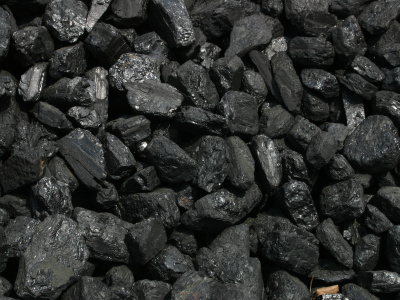
The potential of the new mining code and partnerships for sustainable mining in the DRC
Its vast mineral resources make the Democratic Republic of the Congo (DRC) one of the richest countries on earth. Paradoxically, the country is in the bottom 15 of the Human Development Index. The reason for this poor status is a conflict that has badly affected various parts of the country and left close to two thirds of the population in abject poverty.
The DRC has also not succeeded in generating enough revenues from the mineral exploitation it depends on. A World Bank study shows that while the country depends heavily on natural resource rent (ranked 16th out of 186 countries), overall revenue collection is very low (ranked 104th out of 117 countries). There is widespread evidence that these proceeds from mineral exports have been used to perpetuate the conflict.
Several voluntary standards have been introduced to promote responsible sourcing of minerals from the DRC, among other conflict areas. There have also been moves by countries where these minerals end up to enact regulation that enhances responsible sourcing from the DRC and elsewhere. Take the EU regulation on conflict minerals for instance, which places the duty of sourcing certain minerals responsibly on importers.
The DRC’s new mining code
It is however also essential that there is regulation in sourcing countries where mining operations actually take place, to ensure that minerals leaving the country have been produced responsibly. The DRC has taken steps in this direction by revising its 2002 mining code. The new code, which entered into force in March 2018, applies to all holders of mining rights.
The new mining code is undoubtedly a modern piece of legislation which, if effectively implemented, could lead to greater transparency in the concession of exploitation permits. It contains measures to prevent abuse in mineral supply chains. Greater transparency can also give a boost to the government’s potential for revenue generation by discouraging unlawful diversion of funds. It would be an opportunity for the provision of basic social services for the communities impacted by mining operations, and beyond.
Environmental protection and social responsibilities of mining companies are clearly enshrined in the new code. To walk the talk will be a challenge however, because monitoring implementation of the code at the provincial and local levels will require resources and expertise that may not be available in the country today.
The role of the UN Global Compact
The United Nations Global Compact (UNGC) can play an important role in the DRC. It was envisioned by Kofi Annan to serve as a catalytic force bringing together government, civil society and businesses, and playing a facilitating role.
The UNGC, the largest global voluntary corporate network bringing together companies committed to responsible business practices, had almost 10,000 member companies by July 2019, a remarkable feat. It provides a unique opportunity to pull resources – the experience, expertise and financial resources of different actors – together to achieve more sustainable ways of production.
A local network of the UNGC was launched in Kinshasa in September 2017, with support from the Embassy of the Netherlands. It provides an opportunity for different stakeholders – business, government, civil society – to work together despite competing interests, and improve the business environment in the DRC by accompanying the (implementation of the) new mining code with its voluntary network aimed at promoting responsible business conduct. However, the local network is still waiting for additional support to become fully operational.
Ensuring environmental, social and economic sustainability in business operations is in the interest of all actors. For instance, for mining companies, adhering to sustainability principles, irrespective of the government’s capacity for oversight and monitoring compliance, can help build long-term partnerships with the government and maintain a social license to operate – which means acceptance by local communities. A company’s inability to do so may (significantly and) negatively impact its image and stability in the mining region, something investors would like to avoid.
Civil society can play a bridging role by recording good practices, disseminating information and generally creating demand for responsible practices. Building oversight capacity is important for the government, not only to ensure that fiscal liabilities of companies are duly collected, but also because a stronger government that can hold companies to account may be perceived with greater legitimacy by its people.
The UNGC can provide an opportunity for creating awareness about sustainable practices, exchanging experiences and collaborative problem-solving to ensure responsible extraction of resources.
The DRC has a significant role to play in how clean minerals are sourced and reach the EU and US shores. Successful implementation of the mining code will therefore be at least half of the equation of promoting responsible business conduct. Effective support from multi-stakeholder initiatives will be a further litmus test to the collaborative efforts between governments, businesses and civil society.
About the author
Gerson Brandao is a senior disaster management specialist with more than 15 years of experience working in emergency and post-emergency contexts. He is currently undertaking a PhD at Université de Strasbourg.
The views are those of the author and not necessarily those of ECDPM or any other organisation, group or individual.



